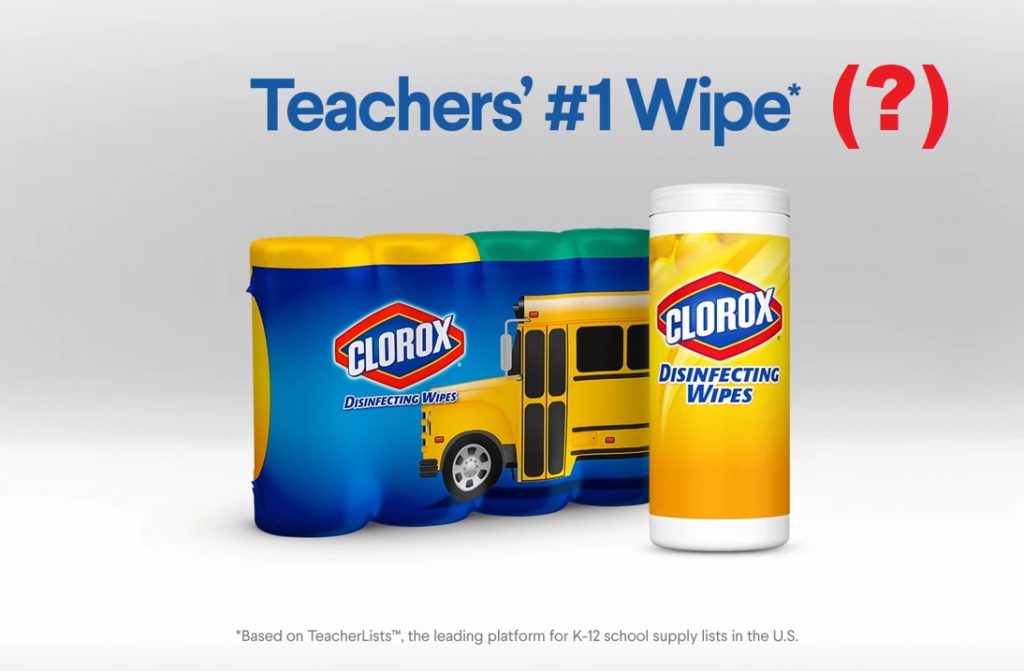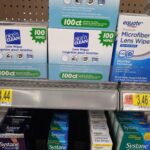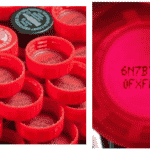
If one household cleanser manufacturer can fling mud at a competitor, the competitor is now showing that it can fling some mud right back.
It seems keeping your home clean can be dirty work.
Lysol manufacturer Reckitt Benckiser has responded to competitor Clorox’s recent lawsuit with a countersuit – claiming that Clorox is guilty of some of the same deceptive advertising that it accuses Reckitt of engaging in.
Clorox sued Reckitt back in March, accusing it of making unfair comparisons between Lysol and Clorox products in its advertising. The ads feature side-by-side tests that claim Lysol products are safer, stronger and more effective than Clorox products.
But Clorox said the comparisons are false and misleading, because they compare different types of products. While it’s true that a gentle Lysol household cleaner leaves behind no bleach residue, for example, Clorox said it’s unfair for Reckitt’s ads to point out that a deep-cleaning Clorox product does contain bleach, because it’s actually designed for a completely different type of use than Reckitt suggests.
The ad campaign makes “apples-to-oranges” comparisons and “represents Lysol products as having performance advantages they do not have,” Clorox claimed in its federal lawsuit.
And now Reckitt has responded – with a defense of its ads, and a complaint of its own about Clorox’s ads.
First, it argues that the products it compares in its ads “are marketed as having similar or overlapping household cleaning uses” even if they are not precisely the same types of products. And it says its claims that Lysol products won’t leave behind a bleachy residue are pertinent, because Clorox has “built its reputation on bleach. It regularly touts the properties of bleach in advertisements and on certain of its products,” even if not all of its products actually contain bleach.
And then Reckitt puts Clorox on notice that, if Clorox is going to question the honesty of Reckitt’s ads – Reckitt will do the same to Clorox.
Just in time for the back-to-school shopping season, Reckitt says Clorox is falsely claiming that its disinfecting wipes are “Teachers’ #1 Wipe.”
Based on what evidence? “Based on TeacherLists, the leading platform for K-12 school supply lists in the U.S.,” the Clorox ads say (“in a light, minuscule type,” Reckitt complains).
Reckitt points out that TeacherLists is a company that provides school supply lists and prices for various products each school year. And Clorox happens to be a sponsor of TeacherLists, which ensures that its products and not competitors like Lysol are included on TeacherLists’ supply lists. “Clorox pays to play at the TeacherLists company and bought its way into the site as a ‘sponsor’ to sell Clorox wipes,” Reckitt’s counterclaim reads. “To suggest that the advertisement fairly and truthfully promotes a cross-section of teachers is outright fraudulent,” Reckitt argues.
Even if teachers do recommend Clorox products, Reckitt says, “teachers are not experts on the efficacy of cleaning wipes so what can their recommendation be based on? They could potentially recommend the product because they like the packaging but not because they have a reliable point of view or basis for the Clorox wipes’ germ-killing abilities relative to other competing wipes.”
That argument may not exactly endear Reckitt with teachers, many of whom would likely dispute that they request certain school supplies “because they like the packaging.”
Nevertheless, Reckitt is asking the court to order Clorox to cease its misleading advertising, as it defends itself against Clorox’s request for Reckitt to cease its own misleading advertising. So, in the end, it may be up to a judge to decide whether to order at least one of these cleanser manufacturers to clean up their act, in the battle for your business.















